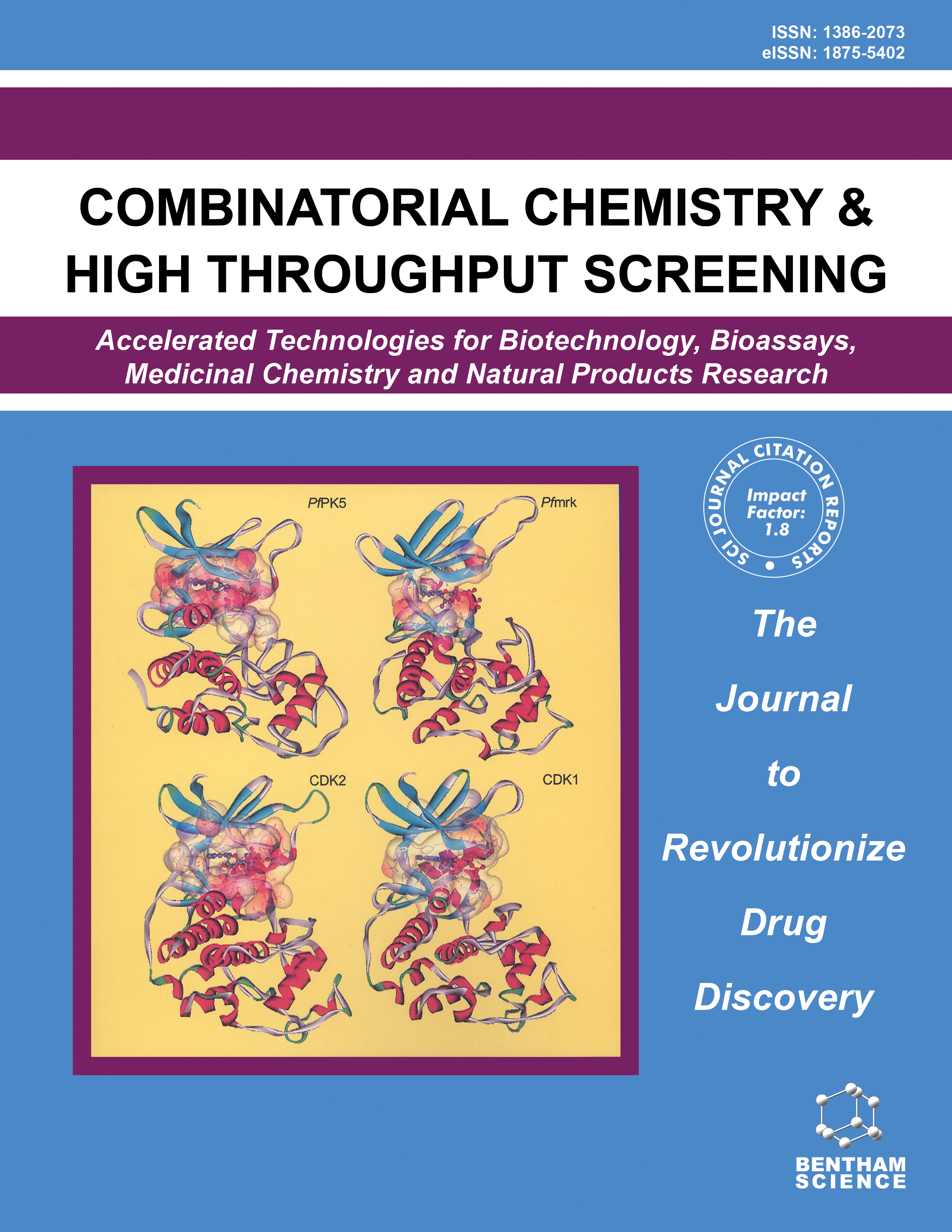-
s FOXD3 Suppresses the Proliferation of CRC Bone Metastatic Cells via the Ras/Raf/MEK/ERK Signaling Pathway
- Source: Combinatorial Chemistry & High Throughput Screening, Volume 27, Issue 3, Feb 2024, p. 436 - 445
-
- 01 Feb 2024
Abstract
Background: The improvements in the treatment of colorectal cancer (CRC) and prolongation of survival time have improved the incidence of bone metastasis. Forkhead box D3 (FOXD3) is involved in the development of CRC. However, the role and mechanism of FOXD3 in CRC bone metastases development are unknown. Objective: Using the combined bioinformatics and cytology experimental analyses, this study aimed to explore the mechanistic role of FOXD3 in the bone metastasis of colon cancer, thereby aiding in the treatment of colon cancer bone metastasis and identification of drug-targeting markers. Methods: First, the changes in the expression levels of the FOXD3 gene and differentially expressed genes (DEGs) between the colon cancer samples and colon cancer metastases were obtained from The Cancer Genome Atlas (TCGA) database. Then, the correlations of the FOXD3 gene with the DEGs were identified. Next, the effects of the FOXD3 on the proliferation and invasion abilities of colon cancer bone metastatic cells were identified using Cell Counting Kit-8 (CCK8) and Transwell cell migration assays, respectively. In addition, Western blot analysis was used to identify the expression levels of the proteins related to the EGFR/Ras/Raf/MEK/ERK (EGFR/ERK) signaling pathway and epithelial-to-mesenchymal transition (EMT). Results: FOXD3 was downregulated in colon cancer and could interact with multiple DEGs in colon cancer bone metastases. FOXD3 gene knockdown could increase the proliferation of human colon cancer bone metastatic cells and their invasive ability. FOXD3 gene knockdown could activate the expression of EGFR/ERK signaling pathway-related proteins and inhibit/promote the expression of EMT-related proteins, which in turn promoted the proliferation and metastasis of LoVo cells from colon cancer bone metastases. Conclusion: Overall, this study demonstrated that the downregulation of the FOXD3 gene might promote the proliferation of colon cancer bone metastatic cell lines through the EGFR/ERK pathway and promote their migration through EMT, thereby serving as a promising therapeutic target.


